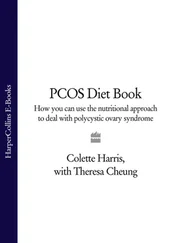Not getting a good night’s sleep is a common reason for low energy during the day. Between 7 and 8 hours of quality sleep a night is what most people need. Anything less than that and your immune system and your body’s battery-boosting systems suffer. This can lead to poor concentration, erratic judgement, slow reaction times, memory problems and poor physical performance, as well as mood swings and irritability.
Your sleep–waking cycle is regulated by the stimulus of sunrise and sunset, but a frantic and unhealthy lifestyle can upset your body clock, causing sleeping problems, fatigue and chronic sleep deprivation. It is certainly possible to train yourself to get by on less sleep, but during sleep both body and brain are restored, rejuvenated and re-energized. So why would you skimp on such a valuable energy-boosting resource? To find out if you are getting enough quality sleep, do any of the following apply to you?
Needing an alarm clock to wake up.
Falling asleep within 5 minutes of getting into bed.
Trouble getting out of bed in the mornings.
Drowsiness during the day and especially around 4 p.m..
Dozing off while watching TV, after a heavy lunch, or in a public place such as a meeting or at work.
Excessive yawning.
Need for caffeine and stimulants to get through the day.
If two or more items on this list apply to you, this suggests a lack of good-quality sleep. You should pay particular attention to the good sleep advice on pages 42–56.
A well-balanced, healthy diet is essential for high energy levels. At its most basic level, what you eat and drink is the fuel that your body and brain need to function at their peak. Skimp on the quality of that fuel and you will pay the price with weight gain and low energy. Skipping breakfast, not drinking enough water, over-eating, dieting, eating on the run, consumption of caffeine and alcohol and eating a lot of refined, processed foods are the major causes of low energy levels.
Do you eat breakfast every morning?
Do you eat at least 2,000 calories each day, mostly comprised of healthy, freshly prepared whole foods?
Do you grab a piece of fruit and a handful of nuts and seeds instead of a bar of chocolate to fight your midday doldrums?
Do you limit yourself to fewer than three cups of coffee every day?
Do you drink six to eight glasses of fluid every day (colas and coffee don’t count!)?
Do you make sure you eat something every couple of hours?
Do you sit down and take your time when you have a meal, chewing your food thoroughly?
More than one ‘no’ answer suggests that your diet may play a role in your energy crisis. You should therefore pay particular attention to the diet-related energy-boosting tips on pages 57–91.
Almost all of your energy comes from glucose (sugar). Therefore, maintaining an even blood sugar level is essential to ensure your energy levels are healthy and your mood upbeat. The best way to control your blood sugar levels is to watch what you eat, in particular what carbohydrates you eat.
Carbohydrates are broken down into sugar, which gives your body energy. The speed at which this process occurs affects your mood, weight and energy, and your ability to cope with stress. Some carbohydrates raise your blood sugar levels quickly, while others take their time. Fast-releasing carbohydrates, such as sugar and white flour, send your blood sugar levels rocketing very quickly after eating them, so you get a burst of energy. Unfortunately this is soon followed by a rapid dip in sugar which means you feel tired and sleepy – that ‘energy trough’ – and you crave another fix all over again. Slow-releasing carbohydrates, on the other hand, such as wholegrains and vegetables, give you a steady release of sugar and energy, keeping your energy levels constant.
Eating food that is going to keep your blood sugar levels and your energy levels constant is therefore vital. The rate at which food releases glucose into your bloodstream can be measured on the glycaemic index (GI). If you haven’t got the time to work with the GI, a general rule is that the more natural and unprocessed a food is, the lower it is on the GI and the better it is for you. In a nutshell, the closer food is to its natural, unrefined state, the richer it is in nutrients and the greater its energy potential. A diet that is rich in fresh, natural wholegrains, fruits and vegetables, legumes, nuts and seeds, and low in red meat, sugar, white flour, refined and processed foods which have been stripped of their fibre, vitamin and mineral energy, fast foods and ready meals, will help you avoid the dips in energy and mood that come with fluctuating blood sugar levels.
For more advice on energy-boosting nutrients and foods, check out the tips on pages 84–5.
When blood sugar levels dip or fatigue sets in, many people turn to stimulants such as tea, coffee, sugary drinks, cigarettes and chocolate to keep them going. Although they can give you a temporary high, the long-term effects of stimulants are always bad.
Alcoholis made from yeast and has a similar effect to sugar in your body, giving you a temporary high followed by a long low.
Coffeeis a diuretic which depletes your body of nutrients and it also contains caffeine which disturbs normal sleep patterns.
Many fizzy drinkscontain caffeine, as well as sugar and colourings which act as stimulants.
Teais a stimulant with similar but weaker effects to coffee, and it contains tannin which interferes with the absorption of minerals.
Chocolatecontains theobromine which has an action similar to, but not as strong as, caffeine.
Medicationsfor the relief of headaches also contain caffeine.
Cigarettescontain cancerous chemicals and the stimulant nicotine which is sedative in large amounts.
Stimulants are your body’s greatest energy-drainers, so one of the most important steps you can take to beat fatigue is to give up or cut down on stimulants. Giving up all these stimulants at once would be impossible for most people, as well as being incredibly stressful. The first step, therefore, is to identify which stimulants you are using as pick-me-ups to get you going when your energy is flagging, and to cut consumption of them down gradually.
To cut down on stimulants without suffering try the following:
Sugar:When you crave something sweet, eat some fruit. Don’t replace sugar with sugar substitutes, as these do not help you re-educate your taste buds. Take the sugar bowl off the table and give yourself a month to gradually cut down. Read labels and find healthier alternatives. Stick with it and after a few weeks you will find that your taste buds adapt.
Coffee:Coffee is addictive and it takes about a week to break the habit. You may find yourself feeling groggy for a few days, but this will remind you how addictive and bad for you too much coffee is. Instead of coffee, drink herbal teas or coffee alternatives such as dandelion coffee. After a week you can go back to one or two cups of coffee a day, but as a treat, not as an energy booster.
Tea:Tea isn’t as energy-draining as coffee unless you drink gallons of it a day. Two or three cups a day is fine, but it is still worth experimenting with herbal teas or drinking your tea slightly weaker.
Chocolate:If you adore chocolate, you don’t need to give it up completely. Just eat it in moderation, for example four times a week rather than every day. Most important of all, don’t use it as a pick-me-up as it will have the opposite effect. Go for fruit with a handful of nuts and seeds instead if you need something sweet and satisfying.
Читать дальше



![Theresa Cheung - The Dream Dictionary from A to Z [Revised edition] - The Ultimate A–Z to Interpret the Secrets of Your Dreams](/books/692092/theresa-cheung-the-dream-dictionary-from-a-to-z-r-thumb.webp)








